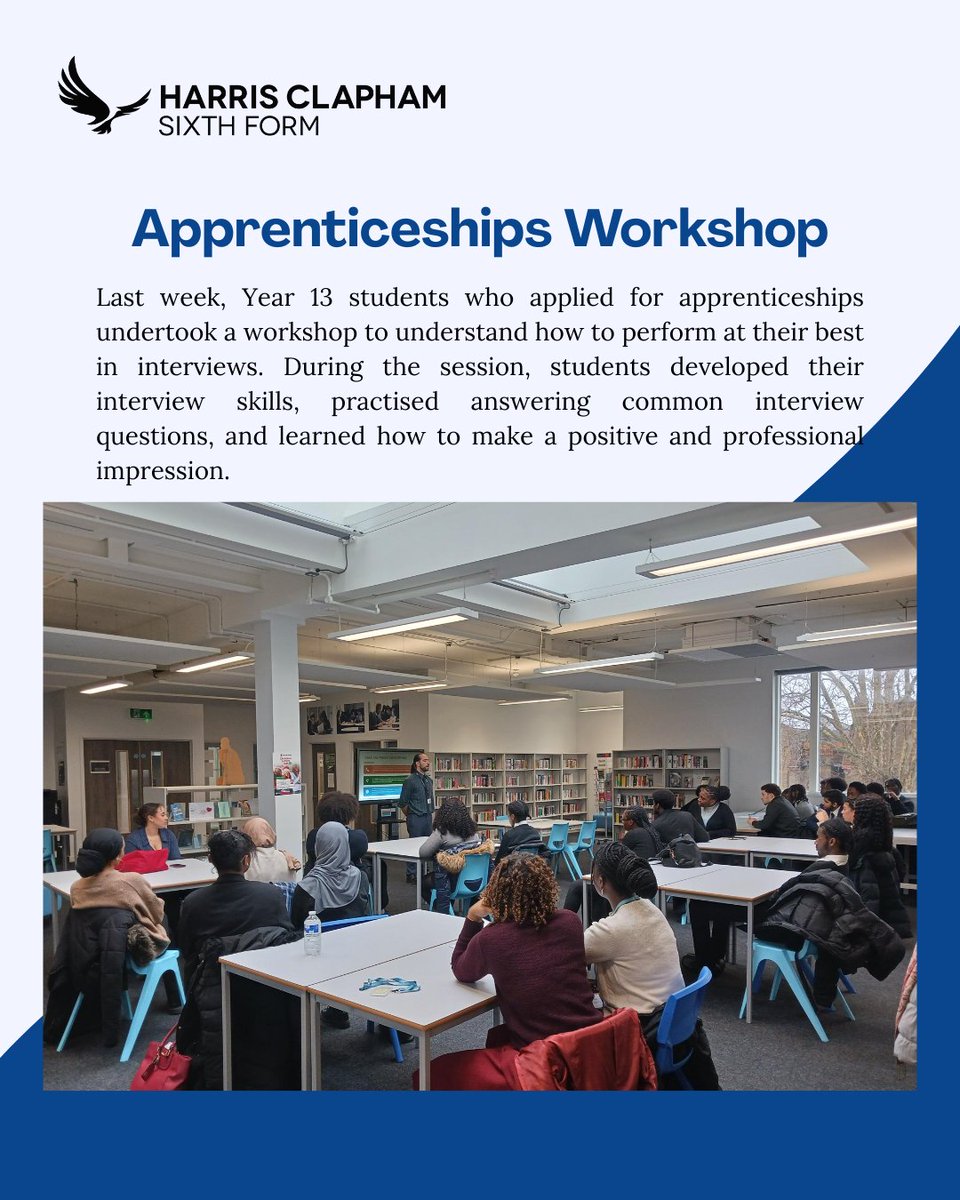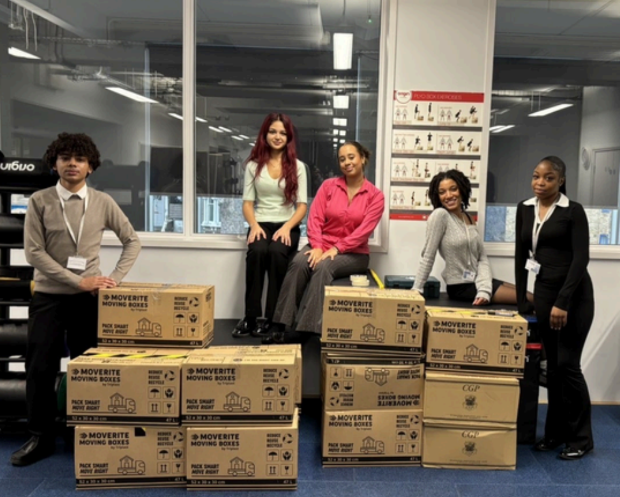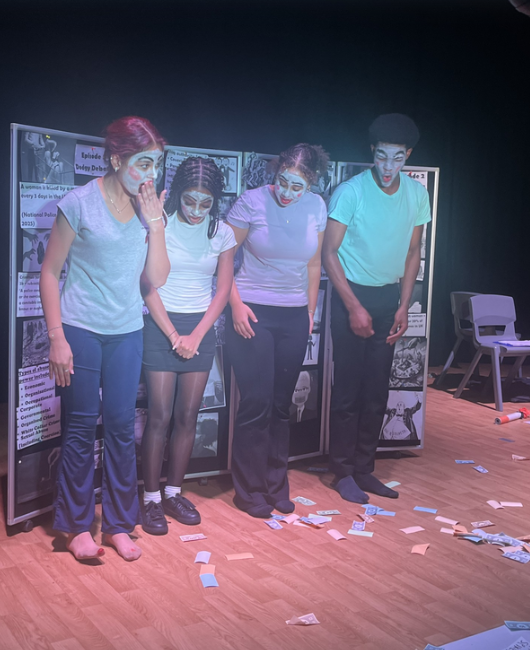Safeguarding
Making sure that our students are safe is the number one priority. Our key job is to make sure we identify, help and manage any child protection concerns. For us this includes our safeguarding curriculum, that is, how we educate our students, in an age-appropriate way, to look after themselves, physically, emotionally and mentally.
Harris Clapham Sixth Form is committed to safeguarding and promoting the wellbeing of young people, and we expect everyone who works in and with our sixth form to share this commitment. Our Safeguarding Policy has been reviewed by Governors and can be accessed at the bottom of this page (as well as e-Safety and mobile phone use policies). Please note these have been reviewed against the most recent version of Keeping Children Safe in Education.
Reporting and managing any concerns
Our Designated Safeguarding Lead (DSL) is Ms Adams. She will oversee the strategic and operational aspects of safeguarding. She is supported by Ms Heuston, Mr Lloyd, Mr Davies, Ms Sandy, Ms Padmore, Ms Jacklin as Deputy Designated Safeguarding Leads (DDSLs). All leaders have had the local authority DSL training. Their details are displayed across the academy and issued to students.
Contact details for the safeguarding team:
- Designated Safeguarding Lead: Ms Adams - R.Adams@harrisclaphamsixthform.org.uk
- Deputy Designated Safeguarding Lead: Ms Heuston - S.Heuston@harrisclaphamsixthform.org.uk
- Deputy Designated Safeguarding Lead: Mr Lloyd
- Deputy Designated Safeguarding Lead: Mr Davies
- Deputy Designated Safeguarding Lead: Ms Pickett
- Deputy Designated Safeguarding Lead: Ms Padmore
- Deputy Designated Safeguarding Lead: Ms Sandy
- Deputy Designated Safeguarding Lead: Ms Jacklin
- Deputy Designated Safeguarding Lead: Ms Eldridge
- Deputy Designated Safeguarding Lead: Mr Colledge
Emails are checked regularly but, if urgent, call Reception on 0204 542 4900. The Receptionist, Ms Johnson, can make contact with a DSL/DDSL in the event of an emergency. The Head of School is also supported by a range of different staff, including our tutors who deliver the tutor programme and are the first port of call for our tutees.
All staff, volunteers and visitors have a duty to report concerns about a young person, either because the young person may be in need of additional support or if it is thought that the student may have been abused or is at risk of abuse. We know that our students may come from different boroughs and so we share the contact details for each borough with our staff.
Concerned about your child or another person's child?
The law is very clear about who is responsible for the safety of children (a child is anyone aged up to 18 years old) and that is all of us. If you have a concern about a student, you have a responsibility to that student to speak to someone. Below are various actions, depending on the nature of your concern:
- If you believe a child to be in imminent danger, call the Police on 101 or 999.
- Call the school and ask to speak to the DSL
- Call MASH on 020 7926 5555 – Lambeth's Multi Agency Safeguarding Hub. MASH is the coordinating body for the main local services for child protection.
- Contact CEOP, the Child Exploitation and Online Protection Command, if your concern is about online child sexual exploitation.
Educating our students to stay safe
It is important that we teach our students, recognising that they are between 16 and 19 years old, how to stay safe. This reflects the contextual safeguarding risks in and around Lambeth where the academy is based. Currently, this means ensuring students knowing about:
- child criminal exploitation, including ‘county lines’
- serious youth violence, including knife crime
- child sexual exploitation, including that for boys
- protection from radicalisation, extremism and terrorism
We work with a variety of agencies, including the police, in helping to educate our students on staying safe. We also have our personal, relationship, social and health education programme that specifically maps out and plan what and how students will learn to stay safe over the course of both Years 12 and 13.
Students also have their form tutor who will get to know them well and will be the first port of call should there by any day-to-day welfare concerns. We also have a counselling service as part of our welfare team where students will be able to self-refer.
Keeping yourself safe
There are many things you can do to keep yourself safe. The first is always talk to someone if you have any concerns or worries. At the academy all our staff are friendly and approachable.
Staying Safe Online
Keeping yourself safe online is a must. You will learn more about this during lessons, but we’ve also put together some resources for you to find out more:
- ThinkUKnow website for young people
- Childnet Hub for young people aged 11-18
- UK Safer Internet Centre resources for 11-19s
- Child Exploitation & Online Protection Centre (CEOP) Has someone acted inappropriately towards you online, or to a child or young person you know? It may be sexual chat, being asked to do something that makes you feel uncomfortable or someone being insistent on meeting up. You can find advice on the CEOP website and can also report any concerns to CEOP using the CEOP Report Button on the right and at the foot of every page.
Remember, if you need immediate help, call 999.
Your Digital Footprint
Everything you post online stays around for a long, long, long, long, long, long time. Before you post anything online THINK – Is it True? Is it Helpful? Is it Inspiring? Is it Necessary? Is it Kind?
If you post something cruel, vicious or deliberately intend to cause offence, then this will make someone else feel unsafe. We all have to show commitment to making the academy a safe place, both within and outside of the building. Therefore do not make posts or comments about other people on any social media; it is unacceptable.
Preventing radicalisation, extremism and terrorism (RET)
We take our obligations under the Prevent duty seriously and adopt a 'proactive resilience approach'. Our Prevent Lead is Ms Adams.
- give students a safe space to debate and challenge ideas within our personal, relationships, social and health education
- have a guest speakers' policy which is coordinated by our designated safeguarding lead
- have a coordinated approach to staff training so that staff know the language, signs and vulnerabilities to look out for when considering RET
- have the structures and processes to implement our RET policy effectively.











